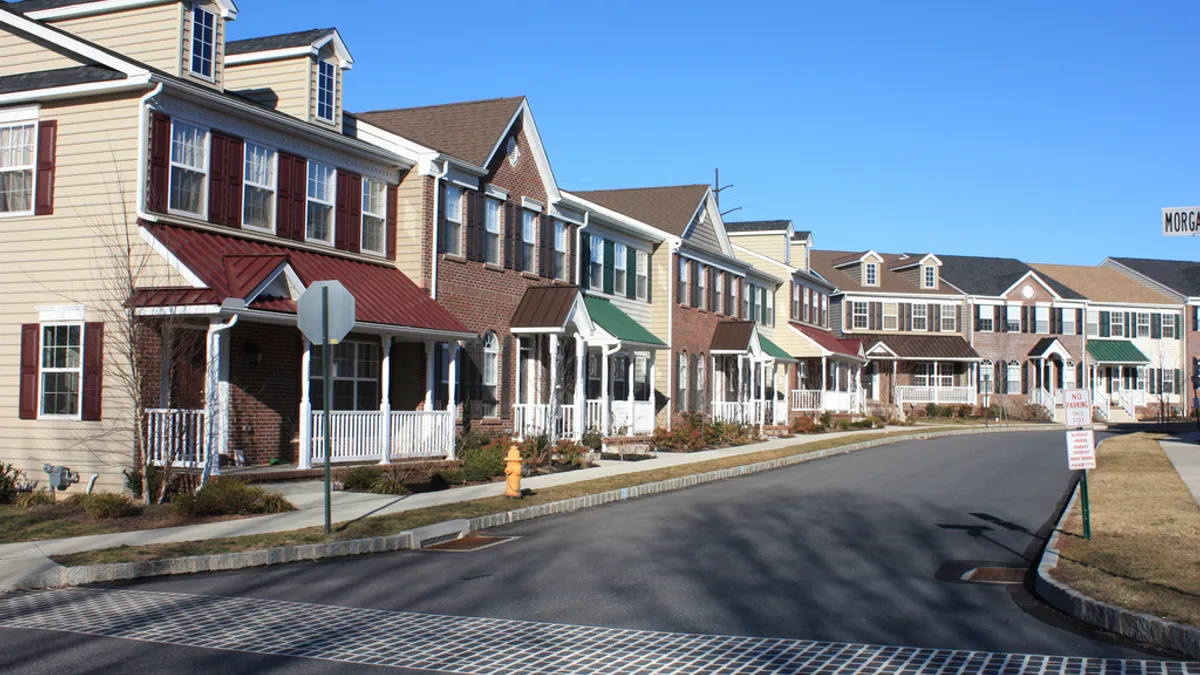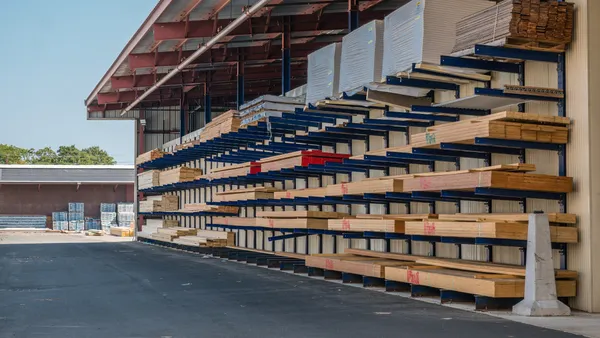Dive Brief:
-
The value of the U.S. housing stock surged 5.7% in 2016 to reach a record $29.6 trillion for the year, according to a new report by real estate website Zillow.
-
With that increase, the market has recovered the value lost during the housing crisis. The total value of all U.S. homes dropped by $6.4 trillion between 2006 and 2012.
-
The Los Angeles metro area took the largest share of the total U.S. housing value in 2016 at $2.5 trillion. New York City was next in line at $2.4 trillion and San Francisco followed at $1.3 trillion. Portland, OR, saw values increase the most among the largest housing markets, rising 13.4% to $286.6 billion for the year.
Dive Insight:
The latest report by Zillow dovetails with other recent data showing recovery in the U.S. housing market following the recession as home prices rise on the back of an improved economy, low inventory levels and tighter lending standards.
The Urban Institute’s Housing Finance Policy Center reported last month that the total value of the U.S. housing market reached $23.9 trillion this year, its highest level since the mid-2000s.
And home price increases have so far showed no sign of slowing, with the S&P Core Logic Case-Shiller U.S. National Home Price Index rising 5.6% year-over-year in October compared to an increase of 5.4% in September.
Although many areas of the country are now more valuable than they were during the peak of the housing bubble, Zillow cautioned in its latest report that roughly 60% of the markets are still below the top values hit in the boom years. Chicago, for example, remains $134 billion below its 2006 high.
Concerns are growing over the issue of affordability as home prices continue to surge and are expected to keep rising this year, if tapering slightly in some markets.
RealtyTrac reported in its fourth quarter 2016 Home Affordability Index that housing affordability hit its lowest point since the fourth quarter of 2008 as wage growth fails to keep pace with rising home prices. Recent mortgage rate increases could also shut many prospective buyers out of homebuying.
For more housing news, sign up for our daily residential construction newsletter.












